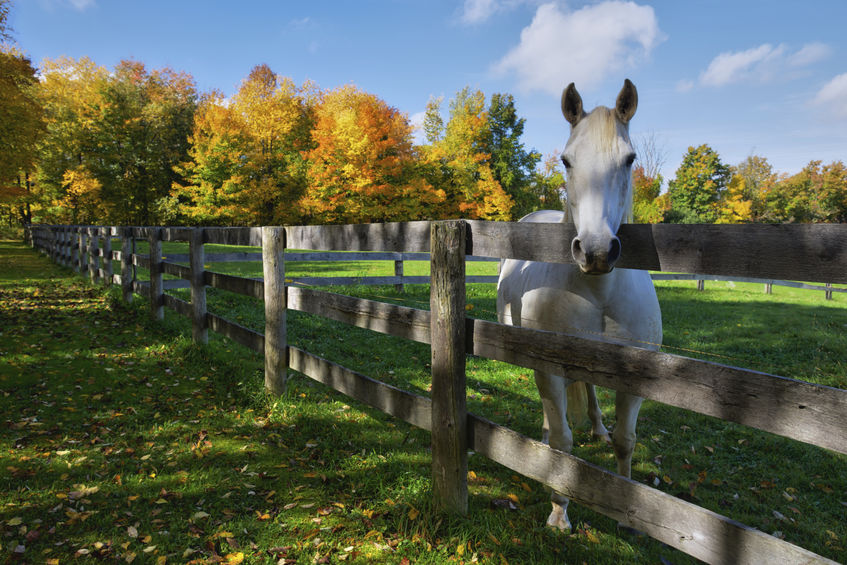
Not All Leaves Are Safe
As leaves start to drop, it’s tempting to think of them as just seasonal scenery, but some types of leaves are actually toxic to horses. Once they begin to wilt and dry out, the concentration of harmful compounds increases—making accidental snacking far more dangerous.
Common trees with toxic leaves include:
- Red maple
- Oak
- Eastern black walnut
- Cherry, plum, and other Prunus family trees
If your pasture is surrounded by any of these trees (or your neighbor’s property is), it’s important to keep an eye on your grazing areas. Horses may not seek out dried leaves on purpose, but they can ingest them while foraging or if the leaves get mixed in with hay.
Other Risks of Leaf Ingestion
Even if the leaves aren’t toxic, eating too many can still cause problems. Dry leaves and plant debris can get lodged in a horse’s esophagus, leading to choke. Signs include drooling, coughing, or food coming from the nose—all of which call for immediate veterinary help.
Leaves can also trigger colic, especially if a horse isn’t drinking enough water. Dry vegetation can accumulate in the digestive tract, leading to uncomfortable and sometimes serious blockages. Keeping water buckets clean and fresh throughout the fall helps reduce this risk.
Keep Your Pastures Clear
The best way to protect your horse? Rake and remove fallen leaves regularly in any area where they roam or feed. Pay close attention to fence lines and corners, where leaves tend to pile up, and inspect hay bales for any accidental contamination.
Protecting your horse starts with a safe, well-maintained environment—and that includes where they sleep and shelter. For high-quality horse barns that support your horse’s health year-round, explore the custom-built options available at Deer Creek Structures. Our Texas-built barns are made to endure all seasons while providing your horses with the comfort and safety they deserve.
Complete our online contact form or give us a call at (254)546-2276 to learn more about our premier horse structures!